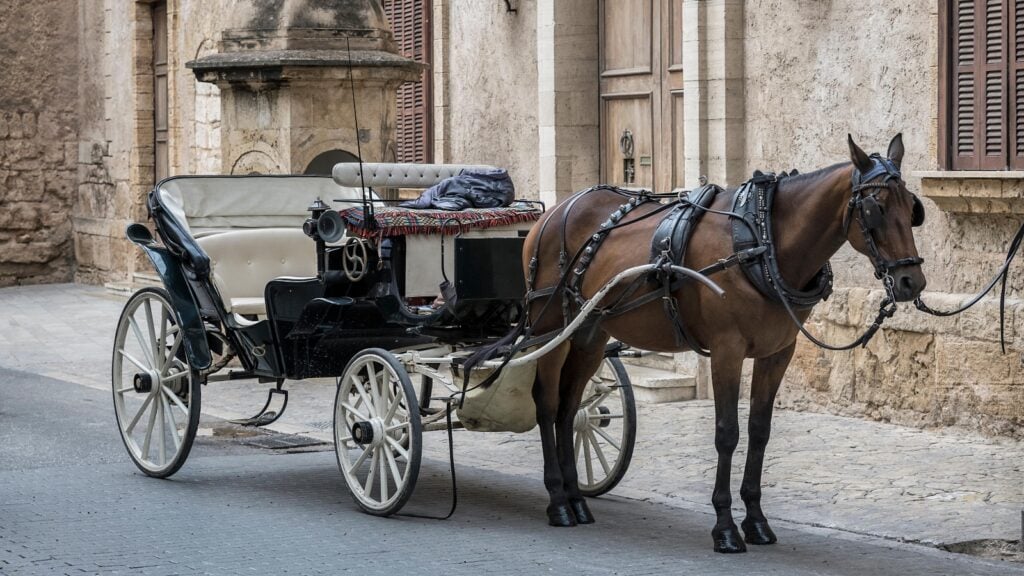Palma, Mallorca has approved a proposal to scrap horse-drawn carriages by 2024 in favor of electric alternatives.
The decision, formally approved on July 28, 2022, follows years of campaigning by the local animal rights political party, Progreso en Verde. The council approved the proposal just days after viral footage showed a horse collapsing in a heatwave.
Only members of right-wing Parties Partido Popular and Vox chose to abstain from the vote. One Vox lawmaker previously decried increased rights for animals as “insanity, nonsense, stupidity.”
The call to end horse-drawn carriages
Once a popular tourist attraction, horse-drawn carriages have come under scrutiny for their impact on working animals. Horses frequently develop anxiety, respiratory conditions, and leg problems that lead to lameness.
Most recently, as temperatures in Europe reached an all-time high at the end of July, shocking footage of a horse collapsing in the Mallorcan capital went viral.
Pulling a carriage in 40°C heat, the animal fainted from exhaustion. This left horrified tourists watching as their driver yanked the animal back to their feet by the reins. Some onlookers brought water for the horse and instructed passengers still sitting in the carriage to “get off.”
As an interim move before the ban comes into force in 2024, the Mallorca council has brought in an immediate reform. It prevents horses from being forced to work when yellow, orange, or red heat warnings are in place.
More to be done in Spain
The future carriage ban only applies to Palma. Other Spanish municipalities are continuing to allow horse-drawn activities.
Popular tourist destinations such as L’Alcúdia and Sant Llorenç de Cardassar still employ dozens of horses. They now face direct campaigning from animal rights activists to follow Palma’s example.
As such, PETA has launched a petition calling on mayors of local towns to extend the horse-drawn carriage ban into their own localities. It emphasizes that horses can live anywhere up to 35 years when allowed to live a life free from exploitation.
In comparison, the average life expectancy of a New York carriage horse, for example, is estimated to be just four years.
Global horse welfare concerns
Palma follows the likes of New Delhi, Oxford, Barcelona, Tel Aviv, and Montreal, all of which have horse carriage bans in place. Prague, Charleston, and New York are now looking to phase the practice out.
New York also recently hit headlines when a horse collapsed in Manhattan during rush hour. Buckling at the knees, the animal fell to the ground, only to have their handler slap and shout at them to get back up. Onlookers reportedly stepped in to protect the animal, who was doused with water in an attempt to keep them cool.
“Yet another sick carriage horse has collapsed in distress on the hot pavement of New York City as onlookers express shock and horror while the animal was repeatedly beaten by the driver,” Edita Birnkrant, executive director of the animal advocacy organization NYCLASS, told CBS News.
“How many more horrific tragedies will it take to end carriage horse abuse in New York?”
The incident has reignited calls for horse-drawn carriages to be banned across the entire city. Councilors are now also considering replacing animal-powered vehicles with electric alternatives.






